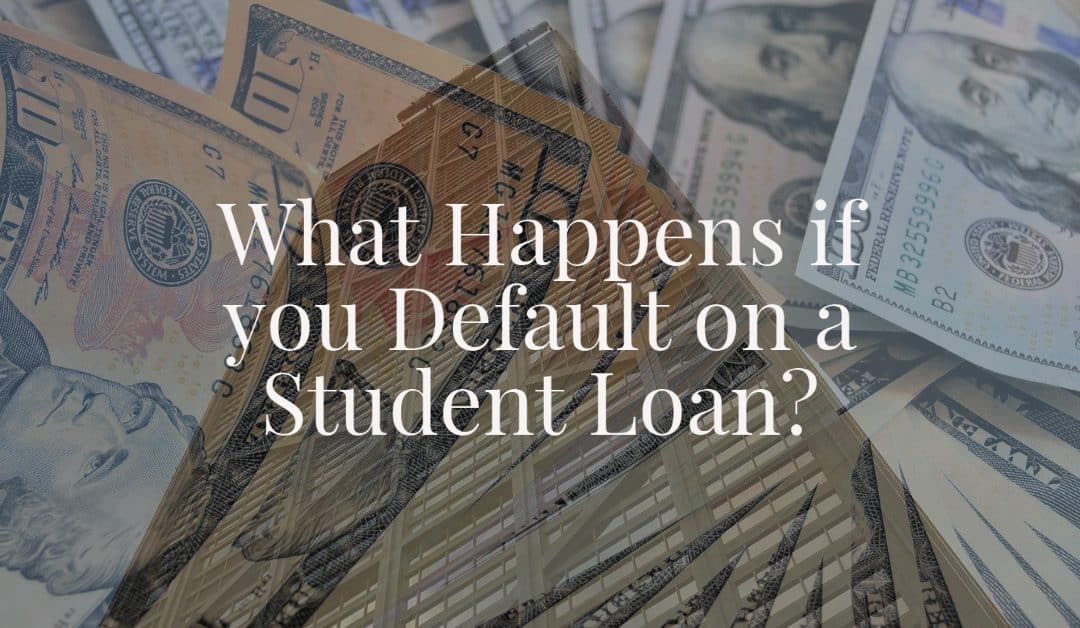If you are struggling with student loan debt, it can be overwhelming and stressful. You are not alone though. A Nerd Wallet 2018 study shows that “The average U.S. household with student debt owes $47,671”.
Student debt is a common problem, but it is not an easy one. If you are unemployed or underemployed, it may not seem fair that you are paying loans but not getting any benefits from your education.
When you have a degree but still can’t find a job in your field, it is tempting to quit paying. You may be asking yourself why you keep paying on a loan when you don’t have enough left over for groceries.
Look Before You Leap
Whether it is fair that you have this loan or not, there are consequences to making bad decisions about such an enormous responsibility. Let’s look at what can happen so that you understand what it really means to default on your student loans.
Time to ACT
When you first miss a payment, your loan servicer will notify you that you are delinquent in your payments. If you have plans to set your loan right, call your loan provider and discuss your options with them.
Often, banks and other lenders will work with you to help set up a situation that will benefit both you and them. It is worth a phone call and a time of discussion.
Options to Discuss:
-
Deferment: This option allows you to push your due dates forward in time because you’re returning to college, going to grad school, doing an internship, clerkship, fellowship, or residency. Your loan will take longer to pay off, but this is a good option if you are still engaged in an educational opportunity that does not pay enough to pay back your loans yet.
-
Forbearance: This is when your lender decides with you to temporarily suspend your payment schedule due to economic hardship or other issues such as our current pandemic situation. You still owe the money, but you and your lender come to an agreement about when your next payment is due. With forbearance, you may end up paying more overall during the life of your loan, but this is a workable option if you just don’t have the funds now to keep your payment schedule.
-
Change Your Repayment Plan: It is possible for your lender to agree to accept a differently structured loan repayment schedule that will take months or even years longer for you to pay off but will reduce your monthly payments.
Problems & Solutions
The problem with the solutions listed above is that you will pay thousands more over the course of your loan and often your loan will take years longer to pay off.
If you are in a situation where you just cannot find a way to pay your monthly payment, these agreements can be very helpful for your situation.
However, as you get to a place where you are able to repay more on your loans, you can remedy the problem by making additional payments each month toward your principal.
It is important that you make sure your lender applies extra payments toward your principal and NOT your interest. This can reduce the loan by thousands of dollars overall and take years off of your loan.
Default
If you do not come to an agreement with your lender within the 90 days after you miss a payment, your lender has the legal right to report your default to the credit reporting agencies: Experian, Trans-Union, and Equifax. (Some Federal loans may not go into default for 270 days.)
If your credit rating drops into the 500’s or below, you will have many problems living your life as you wish.
Services Unavailable to Consumers with Poor Credit:
-
Credit cards
-
Home Mortgage Loans
-
Car Loans
-
Utilities (sometimes you can pay hundreds in security deposits to turn them on)
-
Landlords not likely to rent to you
No More Negotiation
If you go into default on your student loans, you lose the right to negotiate with your lender to make things right. Once you are in default on your loans. you are no longer eligible for deferment, forbearance, or restructuring of your repayment plan.
The biggest issue in defaulting on your loans is that, because you did not work with the lender to find a solution, they are legally allowed to accelerate your loan. This means that instead of your monthly payment being due, you now owe the entire loan amount!
According to StudentAid.gov, these are some of the consequences to letting your student loans go into default.
-
You lose eligibility for additional federal student aid.
-
You may not be able to purchase or sell assets such as real estate.
-
Your tax refunds and federal benefit payments may be withheld and applied toward repayment of your defaulted loan (this is called “Treasury offset”).
-
Your wages may be garnished. This means your employer may be required to withhold a portion of your pay and send it to your loan holder to repay your defaulted loan.
-
Your loan holder can take you to court.
-
You may be charged court costs, collection fees, attorney’s fees, and other costs associated with the collection process.
-
Your school may withhold your academic transcript until your defaulted student loan is satisfied. The academic transcript is the property of the school, and it is the school’s decision—not the U.S. Department of Education’s or your loan holder’s—whether to release the transcript to you.
Because the consequences of not repaying your student loans are so high, it is in your best interest to find a way to continue making payments and keep the privileges of good credit and good standing with your school and the people you live and work with.
Seek an Advisor
If it seems impossible that you will find a way to pay down student debt, consider consulting an attorney who specializes in financial consumer rights. They may find that you have a predatory type loan and that changing loan service providers could make all the difference.
If your loan company is operating illegally, there is also a chance of taking them to court for their actions. It is always best to seek out a consumer rights attorney who can help you navigate this time in your life.

